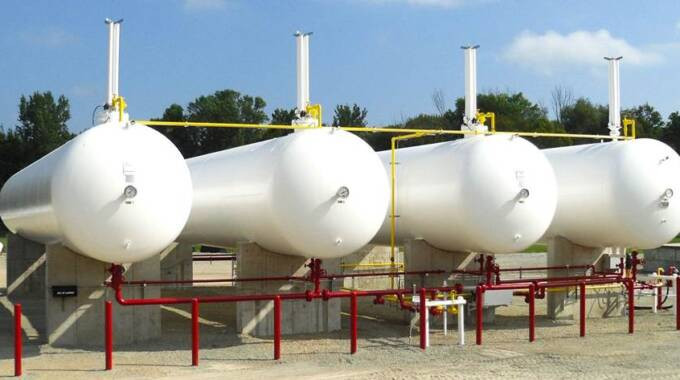
Invictus Energy has poured about US$90 million into exploration work in Zimbabwe’s Cabora Bassa Basin and is pressing ahead with plans to commercialise the country’s first confirmed hydrocarbon discovery. In this interview, Invictus managing director Scott Macmillan (SM) outlines progress on the Petroleum Production Sharing Agreement (PPSA), the implications of National Project Status, and what the Mukuyu gas-condensate find means for Zimbabwe’s ambition to become a regional energy hub. He speaks to our deputy news editor Tinashe Kairiza (TK).
TK: In June, Invictus announced that it had received an updated draft of the amalgamated Petroleum Production Sharing Agreement (PPSA). What are some of the key highlights of the draft document?
SM: The updated draft of the amalgamated PPSA represents a significant step toward establishing a mutually beneficial and transparent framework for upstream oil and gas development in Zimbabwe. Whilst we cannot comment on the specifics of the agreement, some of the key highlights include:
A product/profit petroleum split between the Republic of Zimbabwe and the company, aligned with regional standards which will result in Zimbabwe receiving a fair share of the resources;
The incorporation of fiscal and non-fiscal incentives essential to facilitate the importation and mobilisation of highly specialised equipment, services, and personnel required for drilling and associated exploration, appraisal, and development activities;
A legal and commercial structure that is internationally-competitive, designed to attract foreign direct investment and support full-cycle field development.
TK: Would Invictus consider setting up a community share ownership trust, as is the case with some mining firms that are operating in Zimbabwe?
SM: Invictus is strongly committed to delivering sustainable and inclusive benefits to the communities in which it operates. Under the PPSA the country receives a far greater share of the proceeds as compared to the mining industry and the government is obligated to distribute the proceeds accordingly.
- Mavhunga puts DeMbare into Chibuku quarterfinals
- Bulls to charge into Zimbabwe gold stocks
- Ndiraya concerned as goals dry up
- Letters: How solar power is transforming African farms
Keep Reading
However, under our community social responsibility programme, we engage with local stakeholders and authorities to explore a structure that will deliver tangible outcomes in areas such as education, healthcare, infrastructure, employment, and enterprise development. Our aim is to ensure that communities are true partners in the long term success of the Cabora Bassa Project.
TK: Zimbabwe’s government has granted your operations in the country the National Project Status. What does that mean to your firm?
SM: The company is currently completing the formal process required for the official granting of National Project Status. This is a major milestone for Invictus and a strong endorsement of the Cabora Bassa Project by the Government of Zimbabwe. This designation recognises the project’s potential to deliver national economic impact, employment creation, and energy security.
NPS provides Invictus with a suite of fiscal and non-fiscal incentives, including expedited permitting, duty exemptions on imported equipment, and enhanced engagement with government agencies. It also sends a strong signal of confidence to international investors, contractors, and financial institutions.
The Mukuyu gas-condensate discovery is a transformational achievement for both Invictus and Zimbabwe. We are now in the appraisal phase, which is the critical next step toward commercialisation. Specific timelines will depend on the results of ongoing technical work and financing.
However, the company is aiming to achieve small scale pilot production through a gas to power project with Eureka Gold Mine as a proof of concept in the next 12 to 18 months, which will then facilitate the way for the full field development.
TK: What does that discovery mean in terms of Zimbabwe being a key gas-producing country in the region?
SM: The Mukuyu discovery is the first confirmed hydrocarbon discovery in Zimbabwe and has the potential to position Zimbabwe as a regional energy hub, with domestic gas supply for power generation and industrial use and the potential to export to regional markets.
This discovery lays the foundation for a new era of energy independence, industrialisation, and foreign investment in Zimbabwe.
TK: How are negotiations between Invictus and prospective farm-in and strategic partners for participation in the future development of the Cabora Bassa Project unfolding?
SM: We are currently engaged in active negotiations with a range of prospective partners, including industry operators, financial institutions, and sovereign-backed investors.
Our focus is on selecting partners who bring capability, financial strength, and long-term alignment with our development vision. We expect to finalise partnership arrangements over the coming months in support of the next phase of the project.
TK: What are the company’s long-term plans in the region?
SM: Invictus is committed to being a long term partner in Zimbabwe and the broader African region. Our strategy includes:
l Advancing the Mukuyu field through appraisal, development, and commercial production;
l Exploring additional prospects within the Cabora Bassa Basin, which remains highly underexplored, including the drilling of the upcoming Musuma-1 exploration well;
l Supporting gas to power and gas to industry projects to address Zimbabwe’s energy needs and reduce imports;
TK: How much has Invictus cumulatively spent on exploration activities?
SM: To date, Invictus has invested approximately US$90 million in exploration and appraisal activities in Zimbabwe. This includes:
l Geological and geophysical work, including basin modelling;
l 2D and 3D seismic acquisition and processing;
l Drilling of the Mukuyu-1 and Mukuyu-2 wells; and
l Technical, commercial, and environmental studies to support appraisal and development.
Oil and gas is a highly capital-intensive industry and our investment reflects our long-term commitment to unlocking Zimbabwe’s hydrocarbon potential and energy independence.











